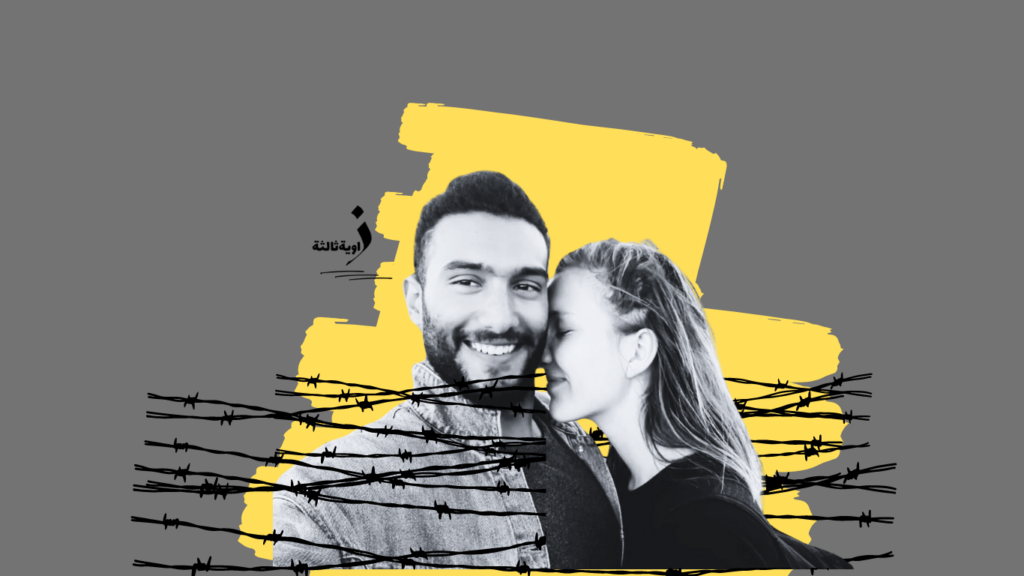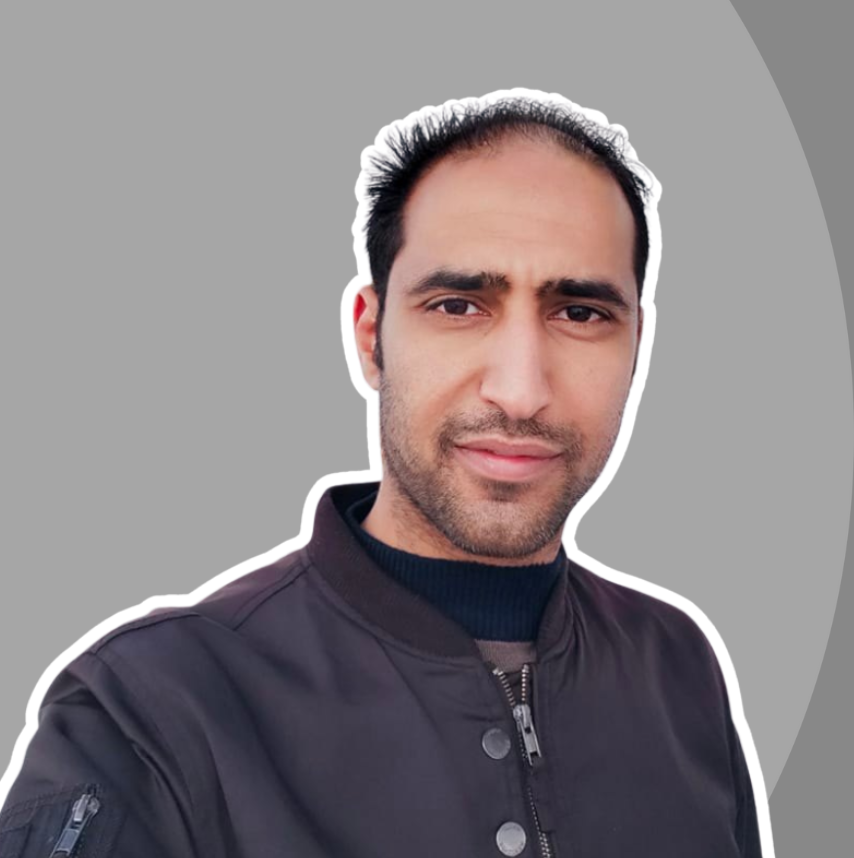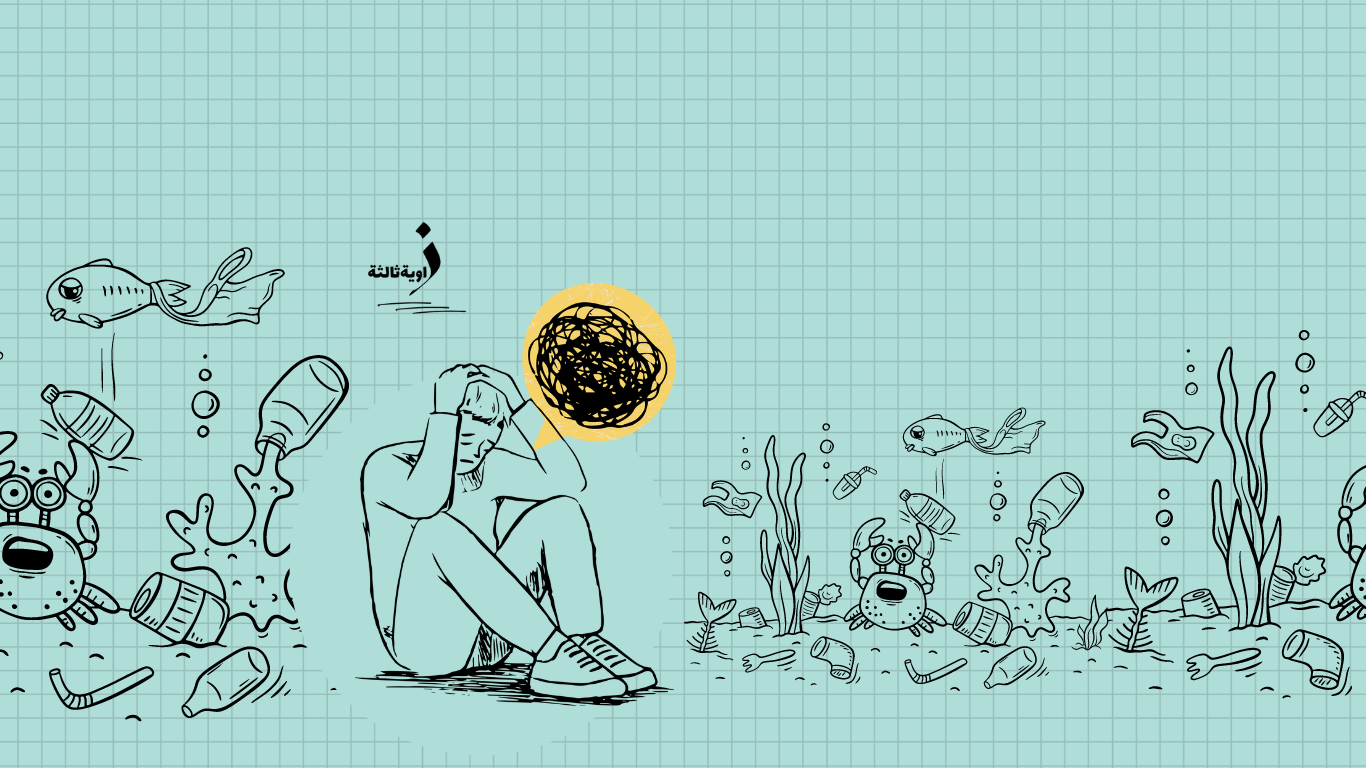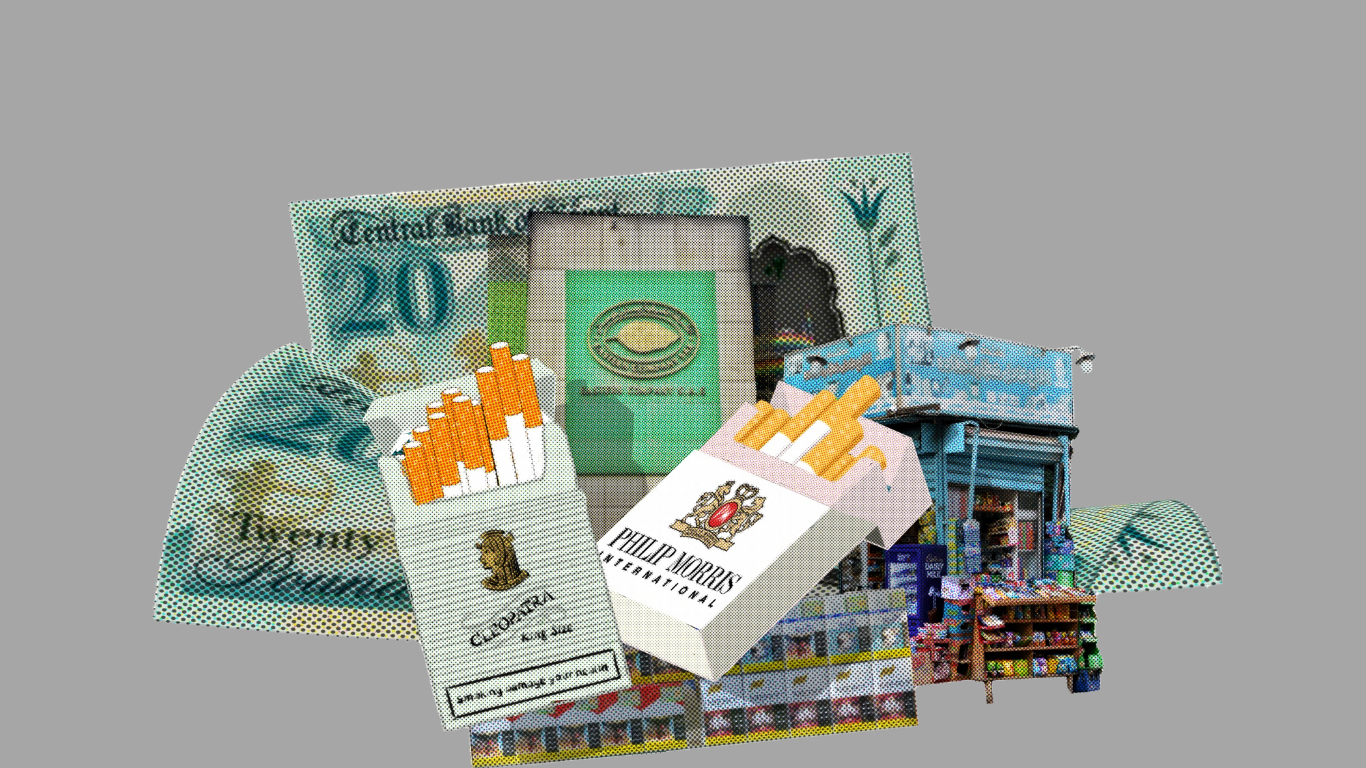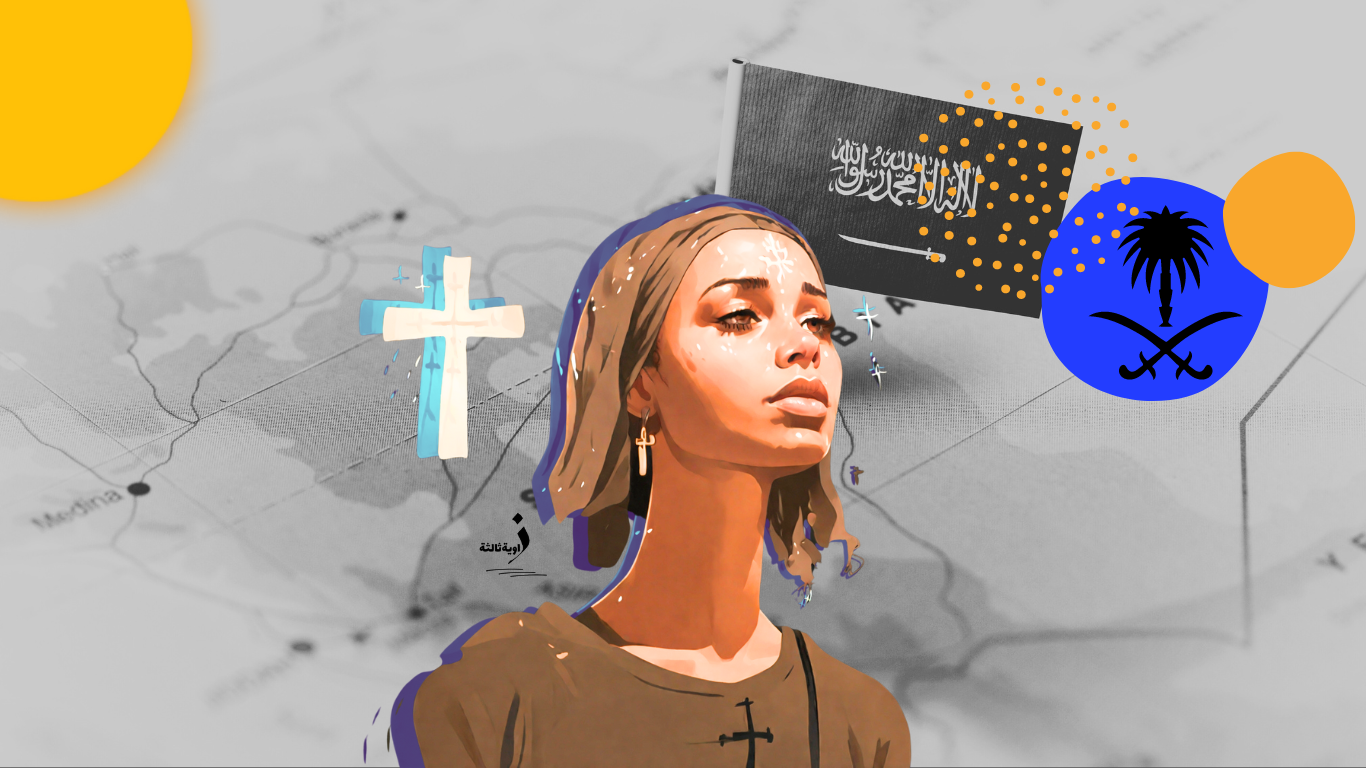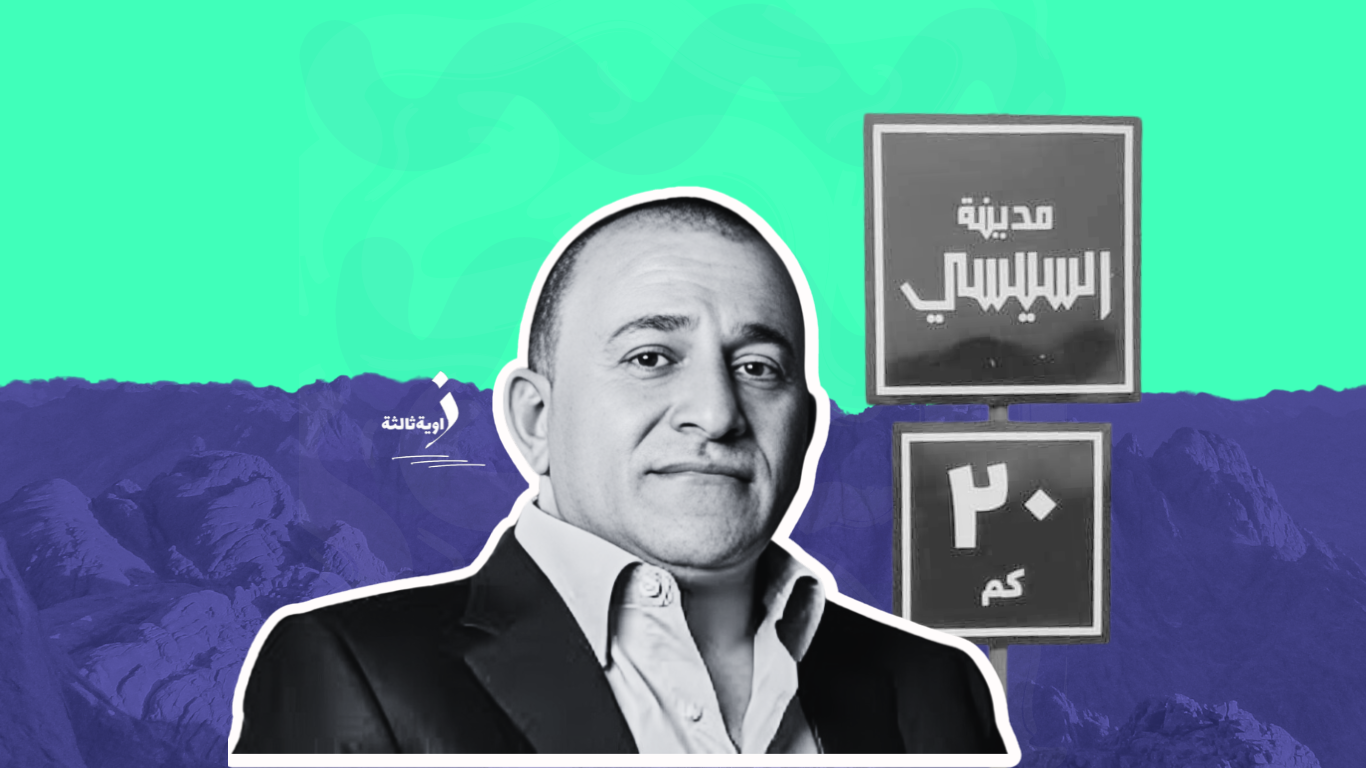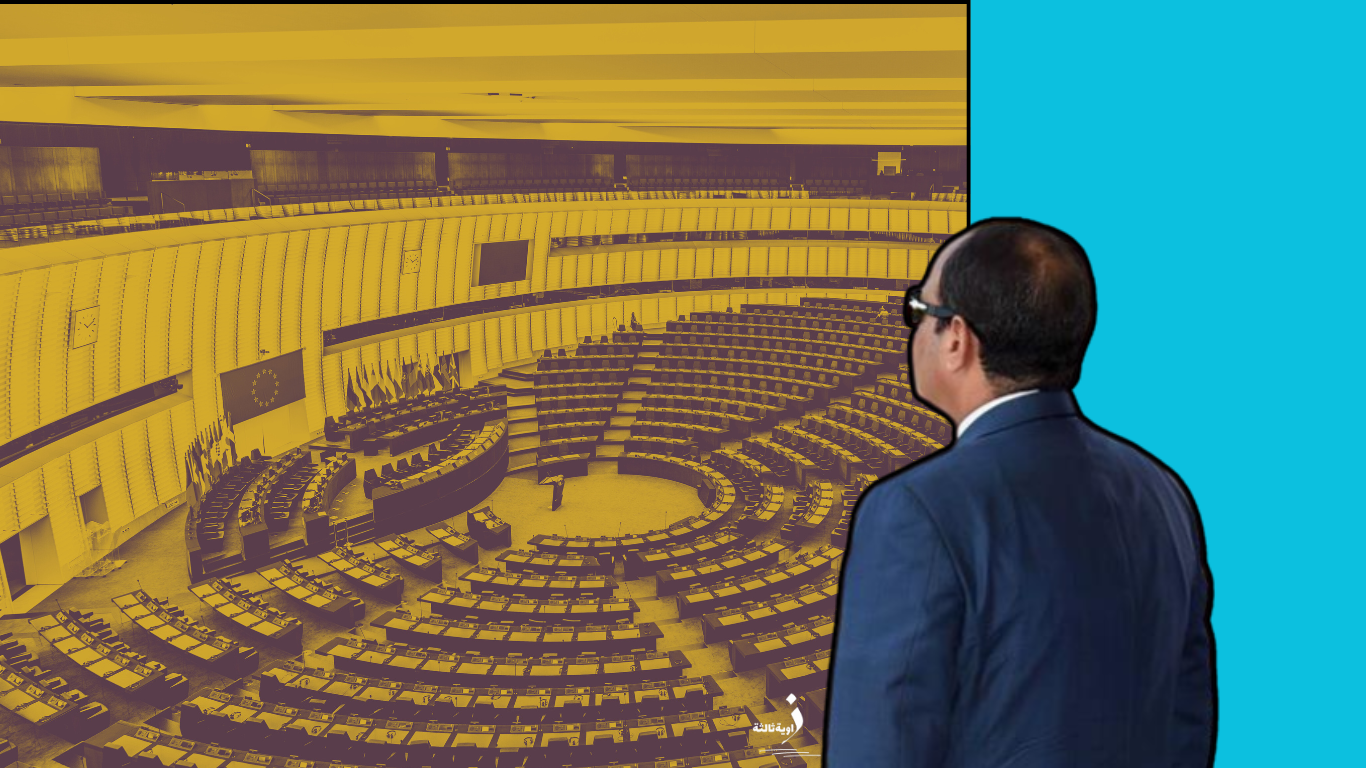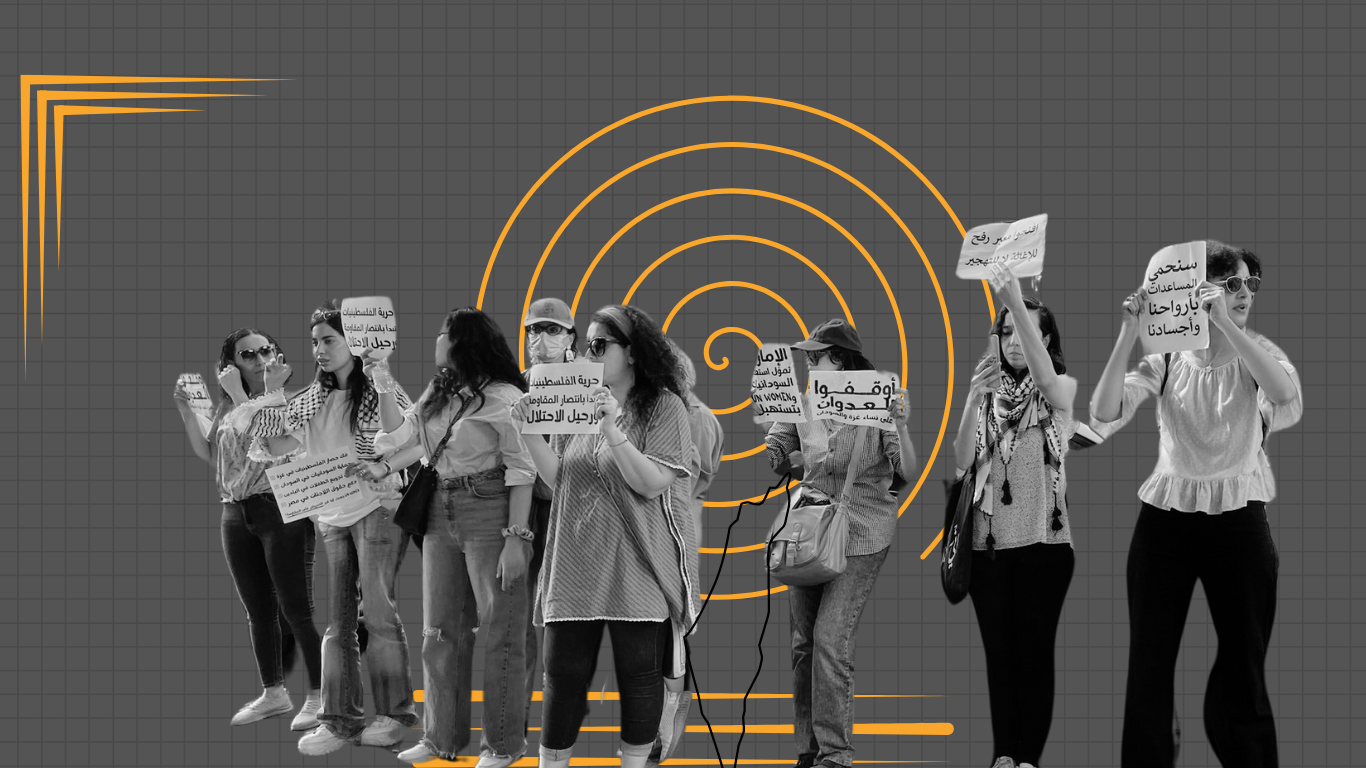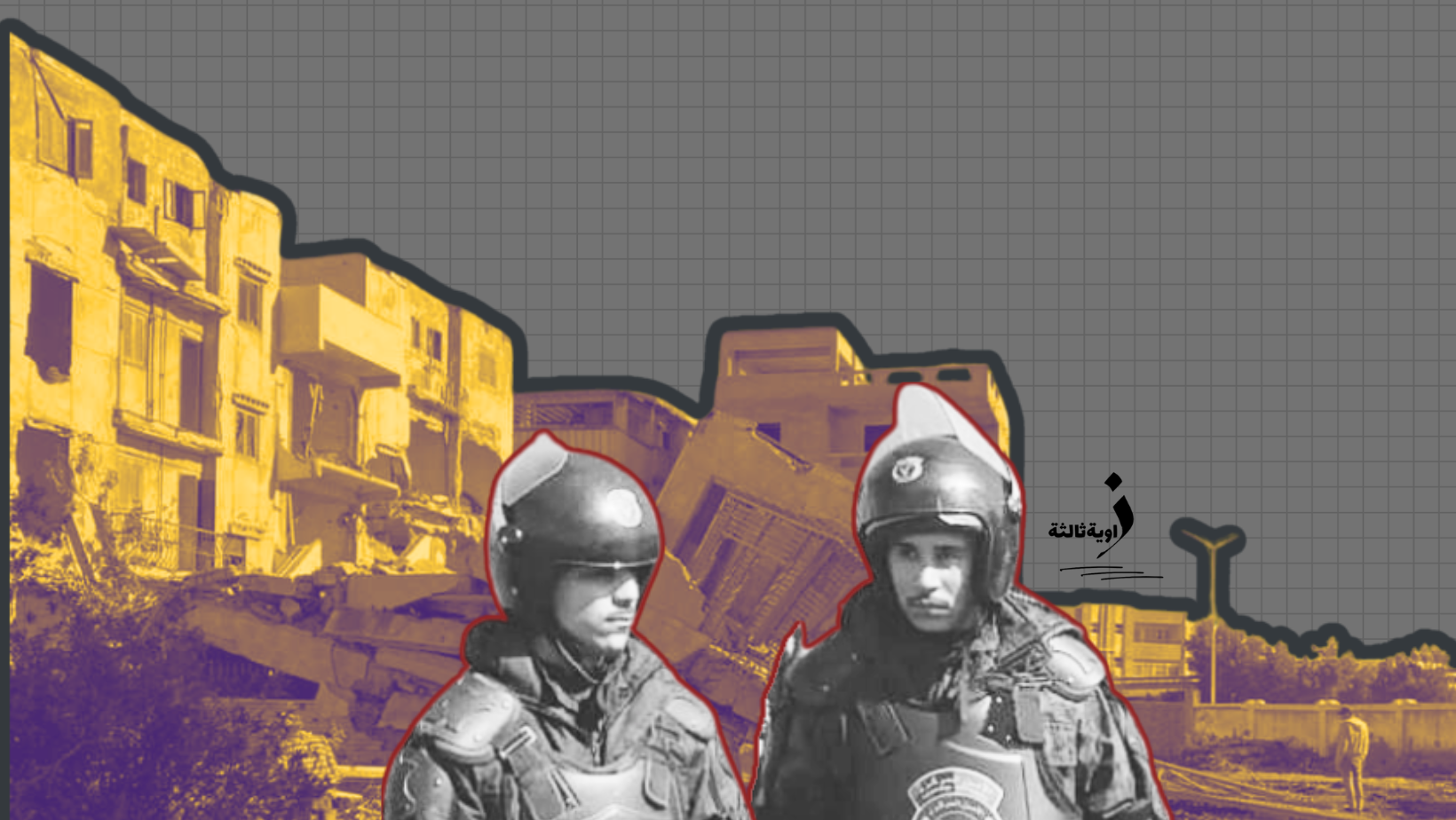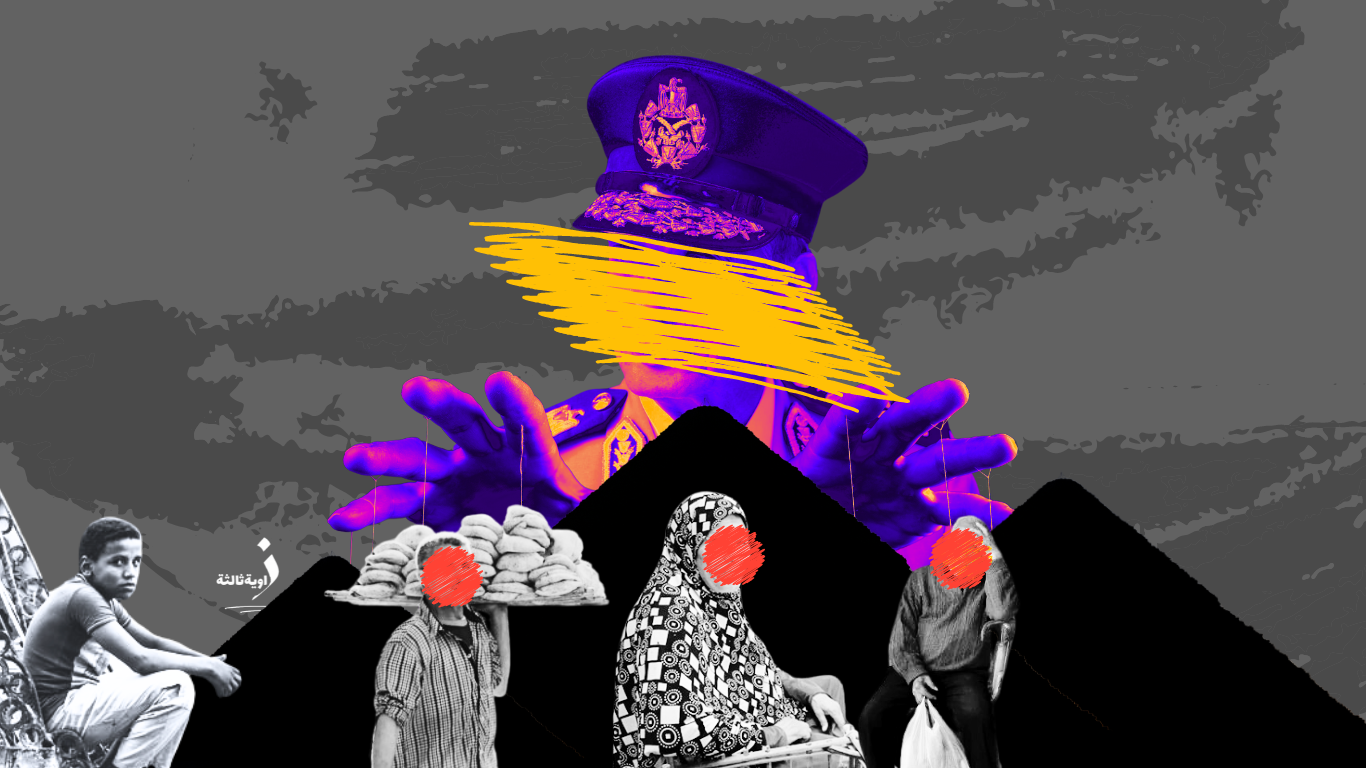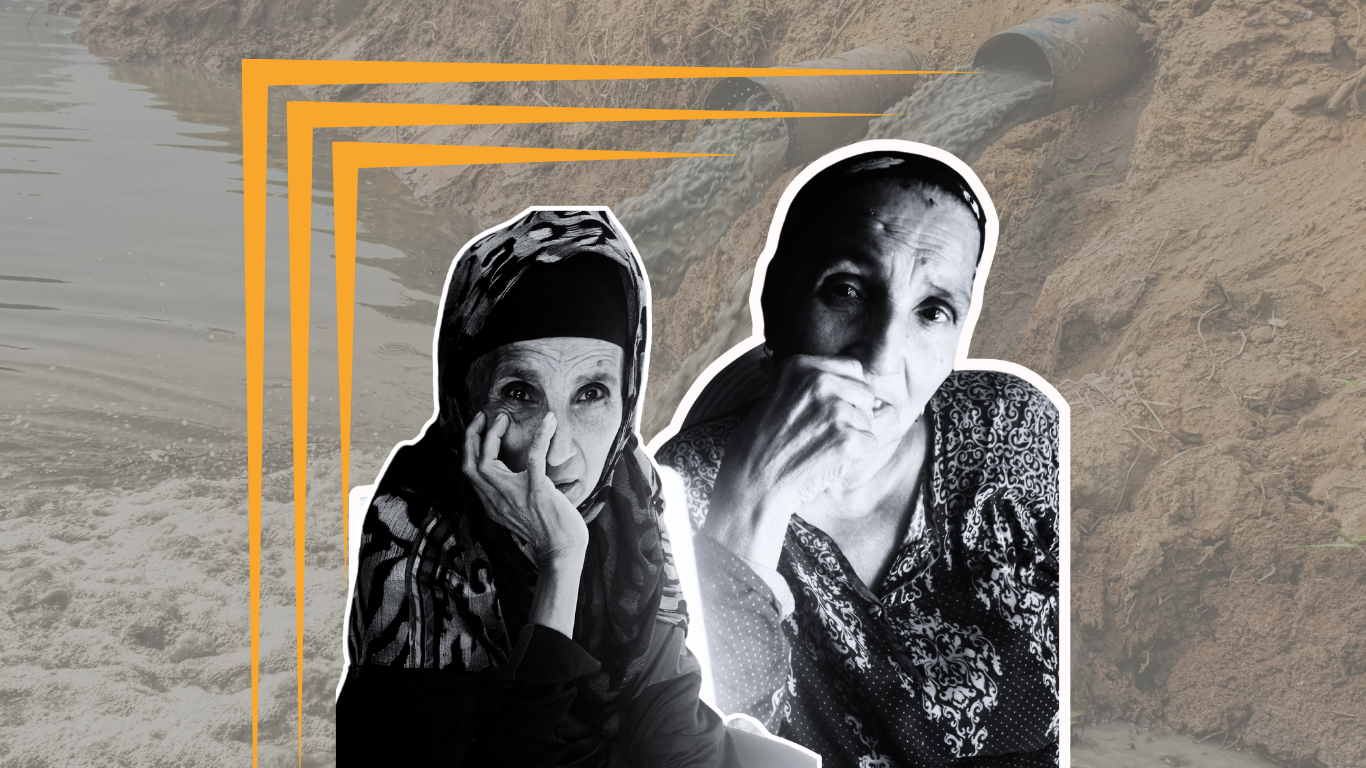“I just want to reclaim my normal life and end this ordeal; my husband’s imprisonment has drained me, and I have no energy left.”
For the past three years, Austrian Elena Pichler (28 years old) has not ceased her demands for the release of her Egyptian husband, Badr Mohamed Abdullah, who was sentenced to five years in prison for his involvement in the protests of August 16, 2013, in the Ramses area of downtown Cairo, Egypt. His unfortunate luck led him to be present at the site of the events at that time.
Zawia3 met with Badr’s wife at her home in downtown Cairo, just a few kilometers away from the Ramses area, where the events of the Al-Fateh Mosque took place, leading to his imprisonment. The walls of the house are adorned with various pictures of Elena, Badr, and their daughter Amina, filled with love and familial warmth between the Egyptian and the Austrian.
Elena arrived in Cairo at the beginning of 2019 to work as a German language teacher. She planned to stay for a year to explore the land of the Pharaohs and then return to her country. However, her visit extended to become a more dramatic story, filled with loss and suffering. The 23-year-old Austrian girl at the time did not expect to fall in love; she had no plans to marry any man in the first place.
But after a few months, she met the young Egyptian Badr Mohamed Abdullah at a party organized by some friends. Their relationship gradually grew stronger. They traveled together to the city of Dahab in South Sinai, exploring Egypt’s tourist landmarks. By the end of 2019, they both realized they were in love and decided to get married.
“Badr” suffered the consequences of his imprisonment experience when he was seventeen years old, for being in the Ramses area during protests against the authority formed after the overthrow of the Muslim Brotherhood regime on July 3, 2013. It left scars on him, which Elena noticed, without getting involved in the fear of his re-arrest.
“He only talked about his feelings, not the details of what happened to him, so I wouldn’t be afraid of Egypt. He didn’t talk politics,” says Elena.
Before Elena came to Egypt a few years ago, specifically in August 2013, Ramses Square in downtown Cairo witnessed protests by supporters of the deposed president, Mohamed Morsi, which ended in deadly clashes with security forces. Human rights organizations say that security forces used unlawful lethal force to disperse the protesters, resulting in the deaths of at least 97 people, in addition to dozens injured. The next day, random arrests were made of those trapped in the Al-Fateh Mosque and its surroundings, including Badr, who was heading to buy school supplies from the Fagallah area in preparation for his first academic year at the Faculty of Engineering. He was 17 years old at the time, according to the Egyptian Initiative for Personal Rights.
It happened. The police raided the house and arrested Badr, who believed that the case of the Al-Fateh Mosque events had been closed and shut down as usual; such cases classified as “political” were typically closed without trials before the events of June 30, 2013, which led to the overthrow of the Muslim Brotherhood regime.
“He was smiling, holding my hand, and saying, ‘Everything will be okay,'” Elena says, tears filling her eyes. She adds that after Badr was thrown into prison, he no longer tells her that everything is okay. A bitter smile filled with regret crosses her face.
He was arrested again, based on an absentia verdict sentencing him to five years in prison in the “Ramses/Al-Fateh Mosque Events” case, which included 494 defendants, with strict sentences handed down to 442 of them. Amnesty International described the trial at that time as a “flagrantly unfair mass trial” marked by shameful proceedings that violated the most basic standards of a fair trial, while security forces, who used excessive and lethal force during the protests on the same day, escaped punishment. It pointed out that “the court based its entire convictions on flawed security force reports and investigations conducted by the National Security Sector.”
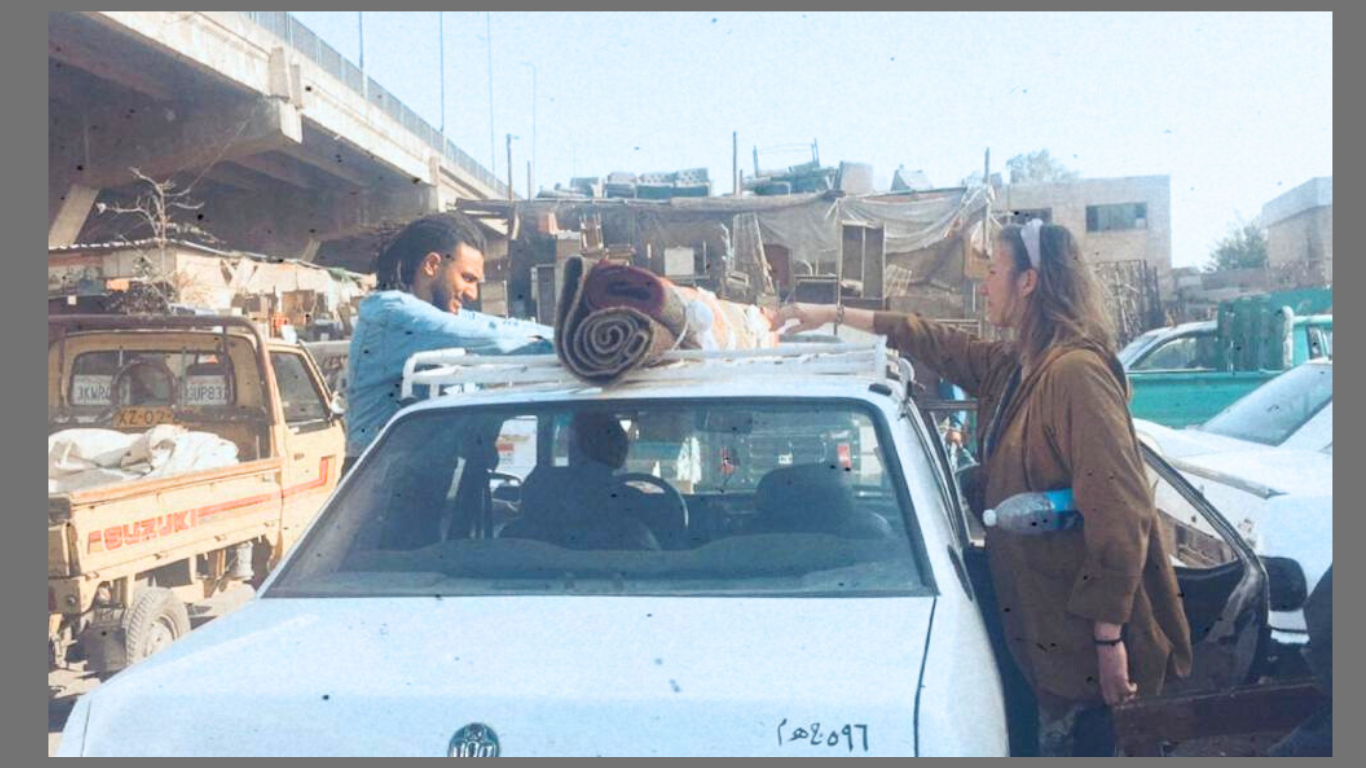
As security forces led Badr toward the police car, he informed his father that Elena was pregnant. The family of the husband, who repeatedly asserts that he was present in the Ramses Square area to buy school supplies, asked the Austrian wife to stay with them, but she couldn’t, shocked. She couldn’t bear living in the house she had built with Badr. She says that her view of the house has changed. Beautiful memories have turned into painful ones.
“This is not my home,” Elena says.
Elena tried to distance herself from Cairo, the city of sorrows, by returning to her country, but she soon returned to Egypt to be close to Badr. She gave birth to their daughter, Amina.
Regarding raising the little girl in her father’s absence, she says, “Raising Amina without her father is tough. Being both a mother and a father at the same time is very difficult. I’m not a single mother; there’s someone in my life who dreamed of sharing moments of our daughter’s growth, playing with her, holding her hands, and other things that are not available against our will.”
Elena tries to preserve memories of moments with Amina to tell her husband about them when he is released. But with each new action the little girl takes, like standing without assistance for the first time, taking her first step, or running for the first time, the mother’s feelings are conflicting. “At that time, I’m happy for what Amina is doing, but also sad because Badr is not here to see it.”
Elena feels separated from her husband, but this separation is involuntary, as she describes it.
Once again, her tone suggests she’s on the verge of tears, but she manages to resist. However, she admits, “At times, I feel exhausted, and the pregnancy is heavy and too big. My strength has run out.”
“I think it’s very difficult,” Elena says.
She talked about her attempts to alleviate the impact of prison on her husband’s mental state, seeing the sadness in his eyes during her monthly visits to him in prison because he’s not by her side and can’t hug their daughter Amina, with whom he spends only a few minutes each month. He can’t answer her question, “Why don’t you come with us?” She said she was very confused and didn’t know how to ease his burden of prison. “Sometimes I think about telling him about something Amina did, but I tell myself, will this make him happy or sad? Because it’s too late… Unfortunately, many moments pass him by while he’s in prison.”
In the house are many paper flowers made by Badr in prison for Elena and their daughter Amina. Almost in every corner, there is a vase containing a bouquet of these flowers. Elena rearranges the flowers placed on the table beside her before speaking again.
Under Egyptian law, those sentenced in absentia are allowed to appeal the verdict so that their case can be retried before the same court, which is what Badr’s lawyers did. But for three years, hearings to review the absentia verdict against Badr were postponed until January 12, 2023, when the Criminal Court upheld the verdict against him.
Human rights lawyer Islam Salama explains to “Zawia3” that during the retrial sessions of Badr, no material evidence was presented to prove his involvement in the Al-Fateh Mosque events and establish his guilt. He did not face any genuine eyewitnesses.
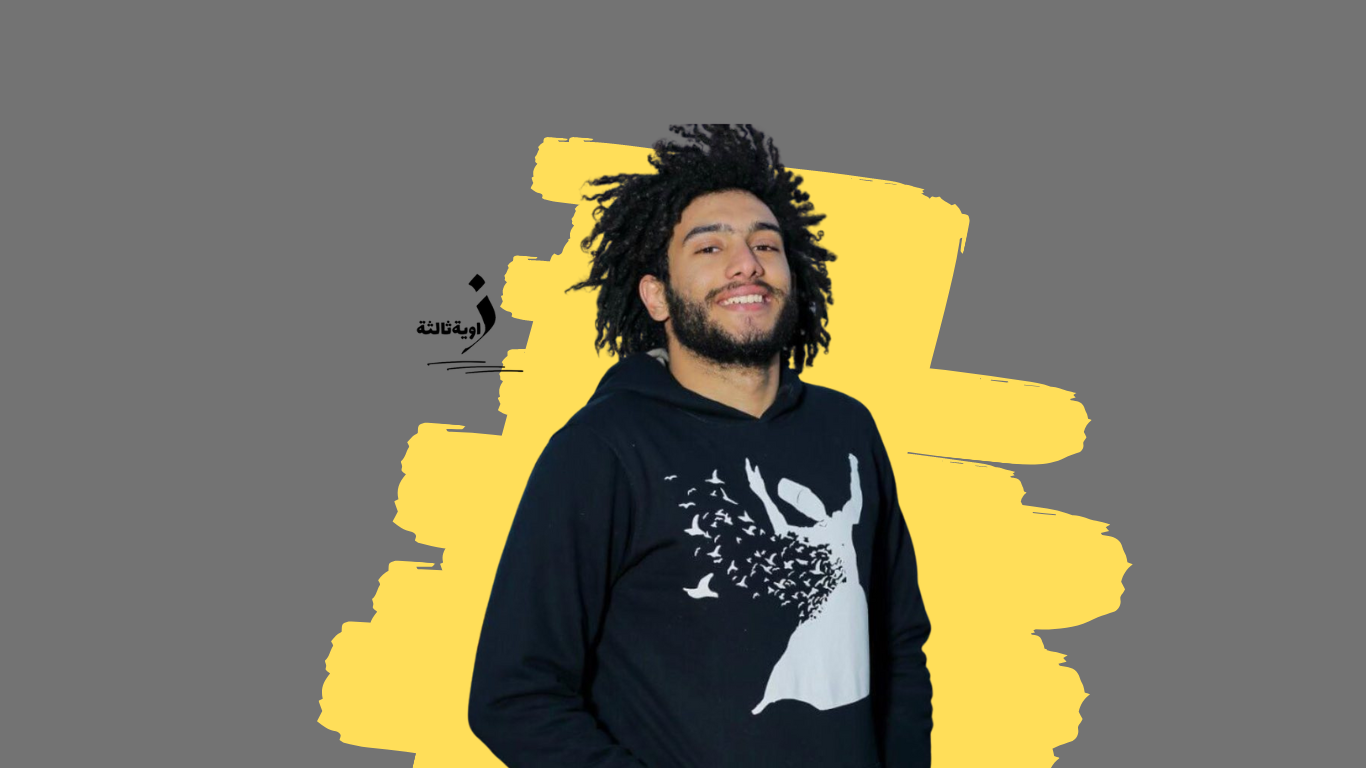
The human rights lawyer added that the court did not consider the testimonies of witnesses who affirmed Badr’s non-participation in the protests. He pointed out that the court based its verdict against Badr and the other defendants in the case on secret reports submitted by security agencies, clarifying that these reports are not accessible to the defendants and their lawyers.
Salama stated that he, acting as Badr Mohammed’s attorney, filed an appeal against the verdict before the Court of Cassation in February last year, but a date for the appeal hearing has not been set yet. He added that the Egyptian Initiative for Personal Rights also submitted a request to the presidency for a presidential pardon for Badr, hoping for his release soon.
Badr believes that he is the reason for his wife and family’s suffering. Every time Elena visits him in prison, she assures him that he is not at fault and not responsible for any suffering they endure. She is happy he is in her life and proud he is her daughter’s father.
Badr has served more than half of his sentence. The Egyptian Initiative for Personal Rights says, “According to the litigation procedures in Egypt, the proceedings for appealing his sentence may continue for a period that may exceed the remaining total duration of his sentence.”
“A journey of love and pain” is how Elena sees her life since coming from Vienna to Cairo. Initially, she fell in love and enjoyed a few months of happiness with Badr, but everything changed, and she experienced “severe pain” in May 2020, which continues to this day.
Elena hopes to soon overcome the stage of “pain” and regain her normal life with her husband’s return to her arms, not having to be strong all the time. She emphasizes that she, Badr, and Amina need to recover from this harsh experience, urging everyone promising her husband’s release after six months to do their utmost to make it happen now and not tomorrow. “The faster it happens, the more it helps to prevent our wounds from worsening and speeds up their healing.”
Elena concludes her speech by stating that every moment she lives now is “painful.” Badr himself has become extremely frustrated. She must face her husband’s frustration and her daughter’s repeated questions about her father, needing someone to help her endure.
On March 10, supporters and friends of Badr Mohammed organized an online rally, during which they indicated that he has been imprisoned for three years and nine months “despite being innocent,” and that since May 2020, they have been demanding his release with the help of many organizations and individuals who promised to do their utmost, but none of those efforts have resulted in his release.
During this online event, Elena Bishr mentioned scenes of Badr’s suffering in prison, where he must watch his daughter grow up from behind bars, with no chance to get to know her while being free.
The Egyptian Initiative for Personal Rights, a non-governmental organization, asserts that Badr’s case deserves a presidential pardon. However, his family has not received a response to their requests to the pardoning committee, which announced that its focus will continue to be on “imprisoned youth” following the president’s decision to reactivate it almost two years ago, specifically in April 2022.

